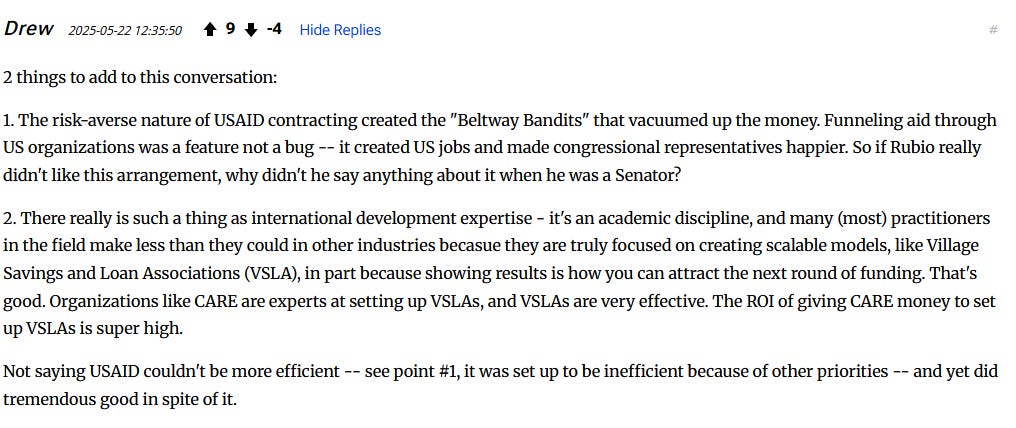A provision "hidden" in the sweeping budget bill that passed the U.S. House on Thursday seeks to limit the ability of courts—including the U.S. Supreme Court—from enforcing their orders.
"No court of the United States may use appropriated funds to enforce a contempt citation for failure to comply with an injunction or temporary restraining order if no security was given when the injunction or order was issued," the provision in the bill, which is more than 1,000 pages long, says.
The provision "would make most existing injunctions—in antitrust cases, police reform cases, school desegregation cases, and others—unenforceable," Erwin Chemerinsky, the dean of the University of California Berkeley School of Law, told Newsweek. "It serves no purpose but to weaken the power of the federal courts."
Why It Matters
The provision would prohibit courts from enforcing contempt citations for violations of injunctions or temporary restraining orders—the main types of rulings that have been used to rein in President Donald Trump's administration—unless the plaintiffs have paid a bond, something that rarely happens when someone sues the government.
What To Know
If enacted, it would be a "stunning" restriction on the power of federal courts, Chemerinsky wrote in an article for Just Security.
"The Supreme Court has long recognized that the contempt power is integral to the authority of the federal courts," he wrote. "Without the ability to enforce judicial orders, they are rendered mere advisory opinions which parties are free to disregard."
Chemerinsky wrote that federal courts rarely require a bond to be posted by "those who are restraining unconstitutional federal, state, or local government actions" as those seeking such orders "do not have the resources to post a bond, and insisting on it would immunize unconstitutional government conduct from judicial review."
Representative Joe Neguse, a Colorado Democrat, said in an interview that the provision was added because the Trump administration is "losing in virtually every court in the land."
Dozens of lawsuits have been filed since Trump returned to office, challenging his executive orders and actions taken by his administration. Judges have partially or fully blocked the president in at least 82 cases, according to a tally by The Associated Press.
The administration has been pushing back against court rulings it doesn't like, with the president lashing out at judges who rule against him and seeking an end to nationwide injunctions.
The Supreme Court earlier in May barred the administration from quickly resuming deportations of Venezuelans under the Alien Enemies Act of 1798.
Meanwhile, U.S. District Judge Paul Xinis has expressed frustration that the administration has yet to provide information that adequately explained how it was complying with her order—which was upheld by the Supreme Court—to "facilitate" the return of Kilmar Abrego Garcia, a man who was wrongly deported to El Salvador.
And last month, another federal judge said he found probable cause to hold the administration in criminal contempt after ignoring his order to turn around planes carrying deportees to El Salvador.
District Judge James E. Boasberg said he would initiate hearings and may refer the matter for prosecution if the administration does not act to remedy the violation. The administration has also removed immigrants against court orders in other cases.
The provision in the House bill "would make the court orders in these cases completely unenforceable," according to Chemerinsky.
"Indeed, the bill is stunning in its scope. It would apply to all temporary restraining orders, preliminary injunctions, and even permanent injunctions ever issued."
What People Are Saying
Chemerinsky also wrote: "Without the contempt power, judicial orders are meaningless and can be ignored. There is no way to understand this except as a way to keep the Trump administration from being restrained when it violates the Constitution or otherwise breaks the law. The House and the Senate should reject this effort to limit judicial power."
A spokesperson for the House Ways and Means Committee told CNN that the goal is to stop frivolous lawsuits.
Neguse said on X, formerly Twitter, that the provision "basically would attempt to try to stop federal courts or limit the ability of federal courts to enforce contempt orders. Why? Because they know that they are, the Trump administration, losing in virtually every court in the land, and as a result, in their effort, in terms of the campaign that they're waging against the judiciary and the Article Three branch of our government, they've decided that this would be the latest salvo in that effort. It's plainly unconstitutional, but they're going to go forward anyway."
Robert Reich, a former Labor Secretary and a professor of public policy at the University of California Berkeley, wrote in a Substack post that the "hidden" provision "makes Trump King."
He wrote: "No congress and no court could stop him. Even if a future Congress were to try to stop him, it could not do so without the power of the courts to enforce their hearings, investigations, subpoenas, and laws. What can you do? To begin with, call your members of Congress and tell them not to pass Trump's One Big Ugly Bill."
President Donald Trump wrote in Truth Social on Thursday that the bill is "arguably the most significant piece of Legislation that will ever be signed in the History of our Country!"
He added: "Great job by Speaker Mike Johnson, and the House Leadership, and thank you to every Republican who voted YES on this Historic Bill! Now, it's time for our friends in the United States Senate to get to work, and send this Bill to my desk AS SOON AS POSSIBLE!"
What's Next
The House approved the bill in a 215-214 vote early Thursday. It now heads to the Senate, where it could face revisions before a final vote.
Update 5/22/25, 11 a.m. ET: This article has been updated to add comment from Erwin Chemerinsky.











